50 Days of Easter
The Rector of the Liverpool Parish Church of Our Lady and St.Nicholas, Dr.Crispin Pailing, has been running a series of Podcast Reflections – 50 Days of Easter. There have been some very moving and thoughtful contributions (see the list and links later in this post).
I was asked to talk about what it’s like to be facing the pandemic from a position of destitution and despair . This was the result:
“Whatever our Faith – or lack of it – this is a moment to ask that same question; to put the genius and resources of mankind at the service of our common humanity; to renew our commitment to those without safety nets, to those living under the shadow of darkness – knowing that compassion and charity may begin at home but must never end there.”
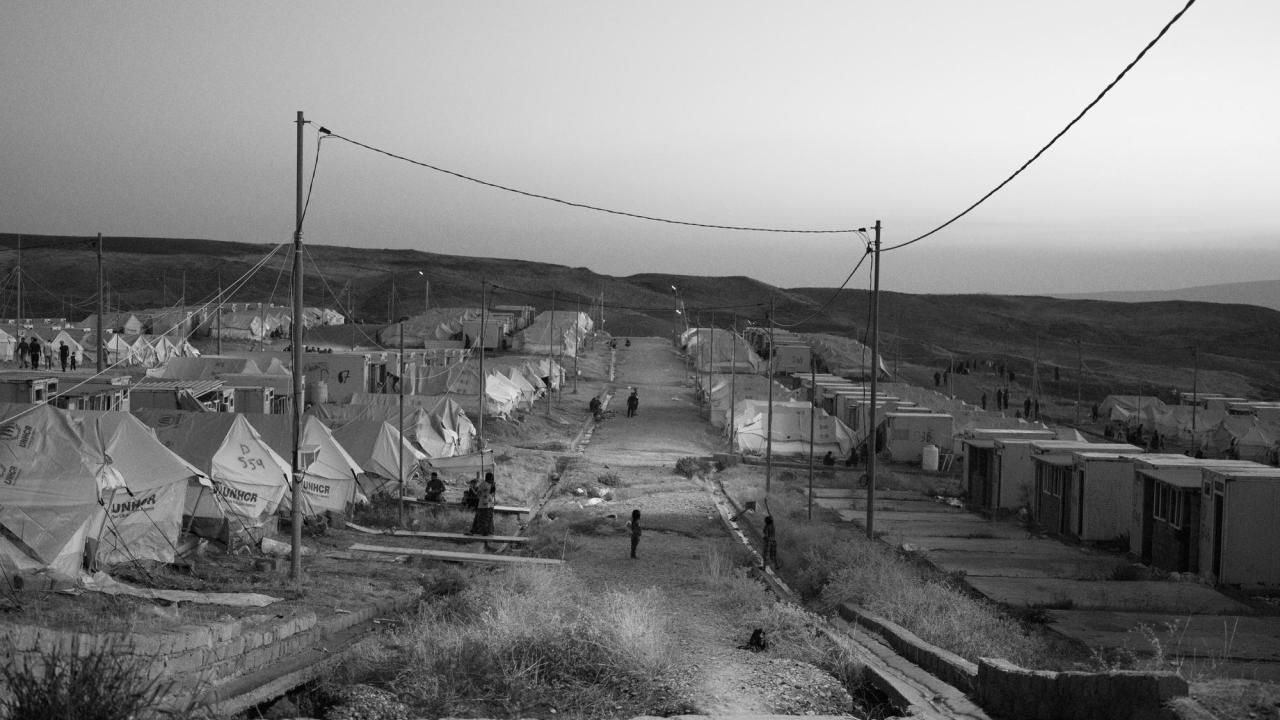
=========================================================================
In recording the podcast it brought back good memories of the annual Lenten Lectures which had been staged at St.Nick’s since Victorian times – staged every single day throughout Lent – and, to which, some of Crispin’s predecessors – Donald Grey and Nicholas Frayling – asked me to contribute. Thirty years before my time another contributor was my wife’s grandfather, the Reverend Edgar Bell.
Despite the lockdown and self-isolating it’s great that, using social media, a way has been found to continue that long standing tradition.
========================================================================
COVID without safety nets – facing Coronavirus from a place of destitution and despair.
In the aftermath of the Great Depression, massive unemployment, and widespread destitution, William Beveridge created welfare provisions which were designed to be a safety net to catch the most vulnerable.
The Welfare State and National Health Service were flagships of a more compassionate society.
In the aftermath of Covid 19, when we examine our response to the elderly and vulnerable, there must be some real soul searching about the successes and the failings, about social solidarity and inequality, supply chain and national resilience and capacity, overreliance on dictatorships like China, the nature of pandemics, and the role of science and international collaboration in public policy.
In responding, it will always be natural to want to look after those closest to us, our families and our local community.
In this horrible pandemic I naturally worry for a son who is an A&E doctor in Liverpool working on the NHS front line; am anxious about isolated friends; fear for disabled and vulnerable people; am horrified by accounts from friends in Italy, Spain, and New York; and deeply shocked as we learn of the attrition within our care homes, and watch workmen assemble make-shift morgues in English cities and provide cold storage for corpses while churches are locked up.
But even worse than all this – how would you begin to cope if, even before the arrival of Covid19, you were part of a persecuted and despised minority living on the margins of society?
Nearly 50 years ago as a newly elected young Liverpool City Councillor I said that “charity and compassion may begin at home but it doesn’t, and mustn’t end there.”
What applies to our individual charity should apply to our public policy too – especially to those, living in the shadow of Covid 19, living without safety nets, lives of utter despair and destitution.
Drill down into the relentless tsunami of news reports about Covid19 and you will see occasional references to beleaguered communities in far-away places; people with no recourse to the British National Health Service; to hand washing; to personal sanitisers; to self- isolation.
I’ve heard this week from Christian friends in Pakistan – many of whom are forced to live in apartheid-style caste-based shanty towns called “colonies” which I have visited: dirt floors, little clean water, no electricity, filthy latrines, people living on top of one another.
Disfiguring prejudice and social and religious discrimination create a toxic cocktail. Throw in Coronavirus and it is catastrophic.
Cleaning latrines and cleaning streets are among the menial jobs reserved for Christians by Pakistan’s Provincial Governments. 80-90% of sanitation workers are Christians. They are not even issued with clothing or gloves.
A high ranking official recently told me that it was a sign of their “respect” for Christians that they are allowed to clean the homes of the majority.
Consider, too, the 25 Christian prisoners languishing in Pakistan’s fetid, malodorous jails – 6 of whom are awaiting execution for their alleged crime of blasphemy.
Spare a special thought for Shagufta Kauser and her disabled husband, Shafqat Emmanuel.
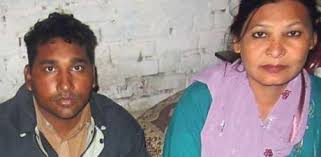
Sentenced to death in 2014 for allegedly sending blasphemous text messages in English – a language which neither of them can speak – on phones they did not own.
Both will be at great risk from the Coronavirus. I have written to Imran Khan asking for clemency. During Ramadan this would be a sign of mercy and compassion.
Instead of which, let me tell you the story of a 22-year-old farm labourer, a Christian.
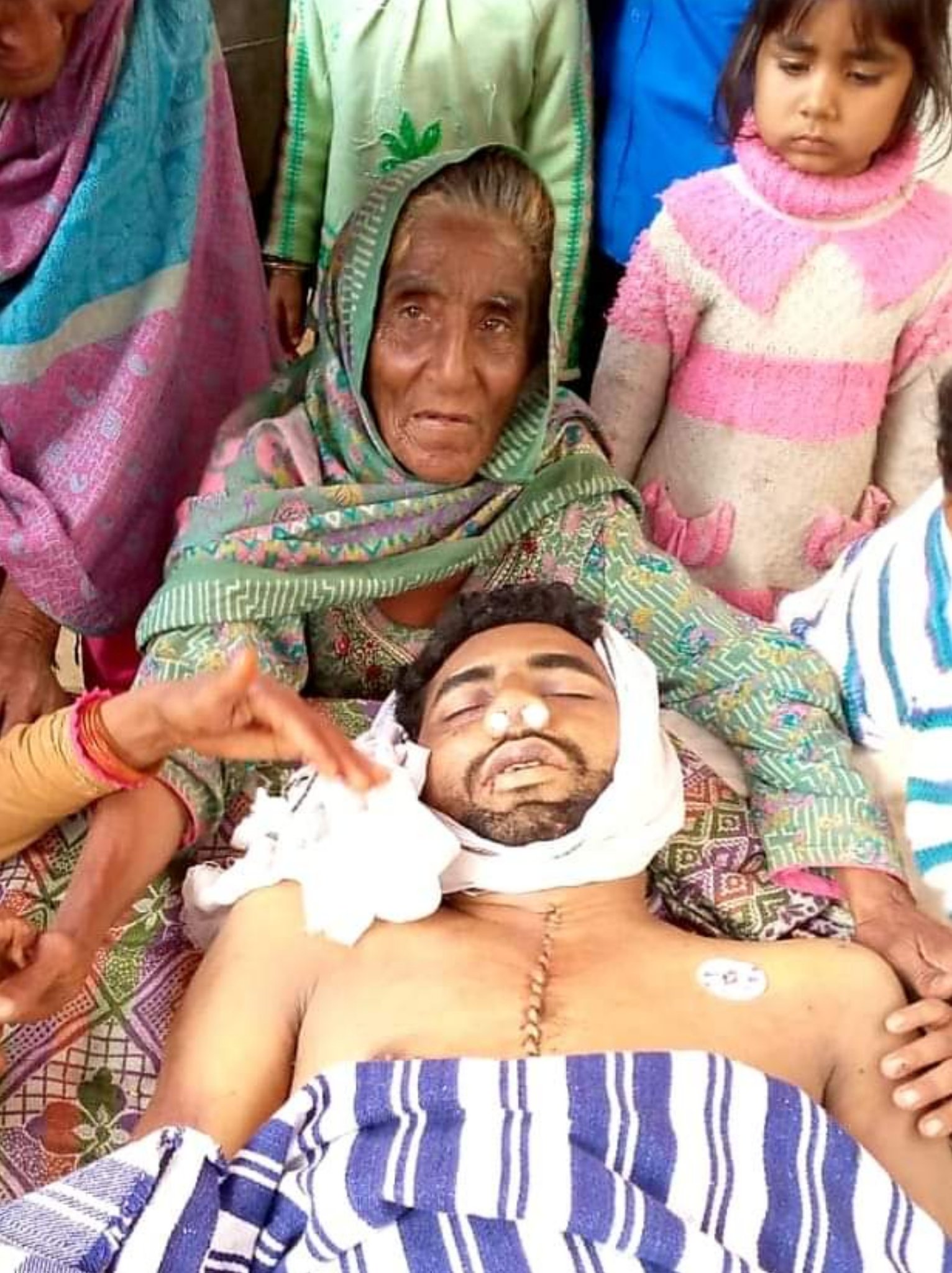
He died at the end of February having been tortured by a cattle farm owner for washing in water from the Muslim’s well in Punjab’s Baguyana. Saleem was accused of polluting the well, so they tortured him with heated iron rods and killed him.
Yes, we are all grappling with grief but imagine that you were Saleem’s mother or father or the parent of Huma Younus, a 14-year-old Pakistani Christian girl, who has reportedly been kidnapped, raped, forced to marry, and to convert.
Or imagine that you are a Muslim Rohingya, escaping from Burma and being refused admission to Malaysia and being sent back to sea on rafts and small boats – and seeing your loved ones drown en route. Or that you are a Uighur Muslim incarcerated along with 1 million others by the Chinese Communist Party in detention centres in Xinjiang – the perfect breeding ground for Covid 19.
The Coronavirus doesn’t discriminate, but persecutors still do; the virus doesn’t know whether you are a Christian, Muslim or atheist but your persecutor does. Like the virus, persecution comes under the cloak of darkness.
Just before Christmas I visited refugee camps in Northern Iraq – where Daesh persecution become outright genocide.
Globally, more than 70 million people have been forced by persecution, conflict, violence, and human rights violations to flee their homes
At the Bardarash refugee camp, which I visited in northern Iraq, people had fled Turkish aerial bombardment.
These camps – overcrowded, with lack of sanitation, limited healthcare or vaccination programmes – are a perfect environment in which Coronavirus can flourish. Even in less challenging times, refugees are out of sight and out of mind: not included in planning for pandemics or natural disasters.
Living under canvas and cooking on open fires in Bardarash, refugees’ health was already compromised as they queued up for rations, handouts, and medical help.
Gladly, they would have swapped places with British shoppers, cross that supermarkets are limiting them to what they can buy or insisting on social distancing.
In countries like Iraq and Syria – where already overstretched public health systems are weak or have been broken by endless conflict and the ensuing chaos – in dismal refugee camps and along porous borders, what chance have the authorities got of halting the transmission of Covid19?
A shocking situation becomes catastrophic when religious or secular leaders inflame hatred against despised, stigmatised, fleeing refugees.
Countries like Turkey and Pakistan all too often allow people to whip up hatred of minorities with little or no sympathy for those fleeing persecution. Excluded from any support mechanisms, Covid19 lockdown denies them jobs, income and food for their families.
No Business Interruption Scheme or Job Retention Scheme for them.
And under the cover of Coronavirus, Militant Islamist radicals add to the number of refugees.
Boko Haram continue their depredations in Nigeria; ISIS regroup in Northern Iraq; Hamas terrorises the few remaining Christians in Gaza; and Somalia’s Al Shabaab drives Christians out of Northern Kenya.
How easily we forget how, five years ago, on the eve of Good Friday, 143 students were killed at Kenya’s Garissa University, singled out and executed for their Christian beliefs.
No wonder we hear the ancient cry “How long, O Lord? How long?” and ask where is God in all this?
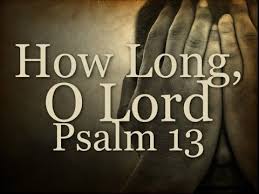
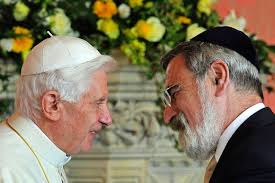
Jonathan Sacks was once asked how, in the light of the horrors of Auschwitz, he could believe in God. He responded: “Don’t ask where was God at Auschwitz- ask where was man.”
Jews and Christians have just celebrated Passover and Easter. Muslims have just embarked on Ramadan.
Whatever our Faith – or lack of it – this is a moment to ask that same question; to put the genius and resources of mankind at the service of our common humanity; to renew our commitment to those without safety nets, to those living under the shadow of darkness – knowing that compassion and charity may begin at home but must never end there.
Previous videos can be found by clicking on the links provided below:
50 Days of Easter
Previous videos can be found by clicking on the links provided below:
30th April Reflection (Lord Alton) https://youtu.be/oM6LLqXPGjw
29th April Reflection (Dr Rebecca Selman) https://youtu.be/Yk76CGzGvOg
28th April Reflection (Joe Anderson) https://youtu.be/k2DFwsjxvnw
27th April Reflection (Prof John Ashton) https://youtu.be/745cRidaepQ
26th April Sunday Eucharist https://youtu.be/eXFJiOqBYDs
25th April Reflection (Fr Fergus Butler-Gallie) https://youtu.be/Kr-76X0y63U
24th April Poetry (Dean Sullivan) https://youtu.be/fXNhlcWN54U
23rd April George Herbert (Peter Kennerley) https://youtu.be/v-R79cwJHQA
22nd April Poetry/Music (Louis Johnson) https://youtu.be/4yNIjcDM1lg
21st April Reflection (Dr Sarah Rushworth) https://youtu.be/WUKna6CyxEU
20th April Reflection (Canon Ray Hutchinson) https://youtu.be/Hc0-eVKmRYo
19th April Sunday Eucharist https://youtu.be/kFoarWypK68
18th April Poetry (The Revd Michelle Montrose) https://youtu.be/ao2JXsFya4E
17th April Jerusalem Easter (Fr Yazid Said) https://youtu.be/XrgT8tx8V1g
16th April Music (Louis Johnson) https://youtu.be/he9IbAd-Mms
15th April Art (April Manderson) https://youtu.be/UhrDtFIzP-4
14th April Baptism (Fr Crispin Pailing) https://youtu.be/69zBDx2GtWA
13th April Introduction (Fr Fergus Butler-Gallie) https://youtu.be/ZtIm-zKMcV8
12th April Easter Day Eucharist https://youtu.be/sbjiuUj5FYo
https://www.livpc.co.uk/whats_on/this_week.html
=============================================================
BBC News: Coronavirus: Seven million Afghan children risk hunger – report
https://www.bbc.co.uk/news/world-asia-52488792
================
Seafarers – vital but so often forgotten
At Stella Maris they are doing their best to remind people of our dependence on seafarers at this time, a group who are also too often forgotten about and yet who are critical to keeping supply chains moving:
https://www.facebook.com/pg/StellaMarisOrg/posts/?ref=page_internal

